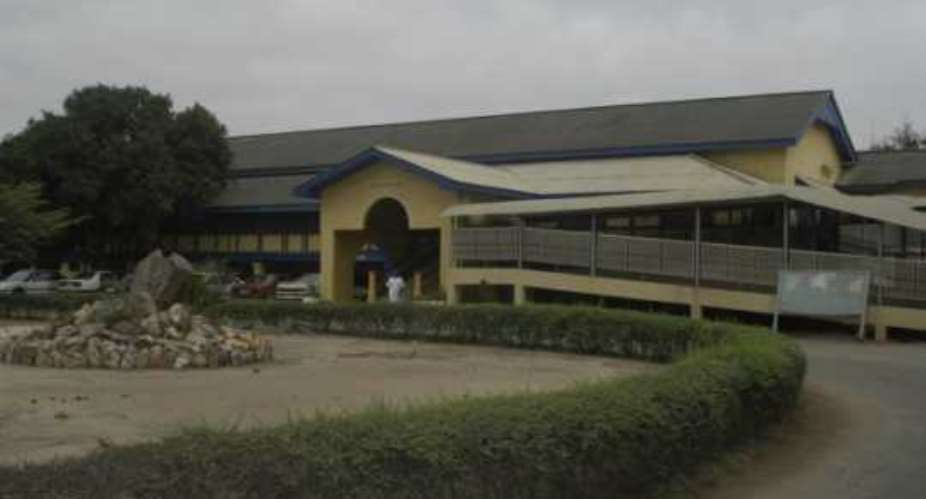Accra, Nov. 30, GNA - Dr. Emmanuel Srofenyoh, a Consultant Obstetrician and Gynecologist and Head of Clinical Services at the Ridge Hospital in Accra has indicated the Hospital's intention to lead in the providing Kangaroo Mother Care (KMC), following the decision by the Ghana Health Service to adopt that approach in taking care of premature babies.
In an interview with the Ghana News Agency, Dr. Srofenyoh recounted the benefits of the KMC to mother and baby, as well as the hospital. Among other things, it reduces congestion in 'our neonatal intensive care unit.' According to him, it also brings back the bond that exists between mother and child which would have otherwise been lost when babies are kept in incubators, observing further that it was cheap and cost nothing. "It also doesn't need power and, therefore, good for the rural areas.'
According to him, the concept is derived from the kangaroo's ability to keep its baby in its pouch to give it warmth and protection. 'When babies are born prematurely they have challenges such as infections, poor temperature control and inability to breath. That is why they sometimes die,' he said.
He said this was the reason why scientists created the incubator to provide the warmth the babies need to grow. "But these incubators are expensive and also separate mothers from their babies. ''There is therefore the need to make babies that are stable and could weigh as much as 1.5 kg stay with their mothers who would then provide the temperature they need to grow", he added.
He said the Ridge Hospital had therefore picked the lead from the Ghana Health Service by setting up a ward to practice this properly, since premature delivery is high in this part of the world accounting for about 5 to 10% of all deliveries.
He explained that a baby was said to be premature when it was delivered between 28 to 37 weeks of conception, but normally when the delivery was between 34 to 37 weeks the baby did not have problems and therefore the need for the mother to provide the warmth it needed by herself.
According to him research conducted in Kumasi by Samuel B. Nguah and others had proved that KMC provided better temperature control for the babies than the incubator system.
He said the basic challenge they had was that when the babies were not stable they could not be admitted to the unit. The other challenge, he hinted, was feeding the mothers for the extra days they had to stay at the hospital.
"Again feeding these babies pose some challenges because the breast milk would have to be pumped out first and then used to feed them. These aside we believe that it is a good concept worth emulating by other hospitals in the country", he said.
Miss. Lina Boateng, a Senior Staff Nurse at the KMC indicated that the Kangaroo system 'is less stressful compared to the use of incubators.' According to her the mothers did not have to move in and out of the hospital to check on their babies as was being done when the babies are at the intensive care unit.
She also observed that it helped the mothers to lactate well because with the babies strapped to their chests the body was constantly reminded of the need to feed the babies, hence breast milk production was enhanced.
She said their criterion for discharging such babies at the unit was that the baby should be able to feed well, suck from the breast and increase in weight from 15 to 20 grammes.
Dr. Funmi Annan, a Paediatric Specialist at the Ridge Hospital lauded the programme as a success story, but was of the view that space was currently their major concern. She believed that with the ongoing construction of a new facility for the hospital the ward may be expanded to make room for more cases.
Hannah Asare, one of the kangaroo mothers observed that she was afraid of her baby because it was so small at birth. But barely after a week at the ward she was hopeful her child was growing as she has seen signs of improvement.
Sandra Sarfo, also a mother, was optimistic that her baby stood a great chance at improving her weight and ability to feed within a short time so they could go home.
GNA





 Election 2024: Power outages will affect NPP – Political scientist
Election 2024: Power outages will affect NPP – Political scientist
 NPP is 'a laughing stock' for luring 'poster-stickers', 'noisemaking babies' wit...
NPP is 'a laughing stock' for luring 'poster-stickers', 'noisemaking babies' wit...
 Dumsor: Matthew Opoku Prempeh must be removed over power crisis – IES
Dumsor: Matthew Opoku Prempeh must be removed over power crisis – IES
 PAC orders WA East DCE to process requests from their MP
PAC orders WA East DCE to process requests from their MP
 Defectors who ditched Alan’s Movement to rejoin NPP were financially induced – A...
Defectors who ditched Alan’s Movement to rejoin NPP were financially induced – A...
 Dumsor: Akufo-Addo has taken Ghanaians for granted, let’s organise a vigil – Yvo...
Dumsor: Akufo-Addo has taken Ghanaians for granted, let’s organise a vigil – Yvo...
 April 23: Cedi sells at GHS13.66 to $1, GHS13.07 on BoG interbank
April 23: Cedi sells at GHS13.66 to $1, GHS13.07 on BoG interbank
 GRA clarifies tax status of resident individuals earning income abroad
GRA clarifies tax status of resident individuals earning income abroad
 2024 elections: NDC to officially unveil Jane Opoku-Agyemang as running mate tom...
2024 elections: NDC to officially unveil Jane Opoku-Agyemang as running mate tom...
 Bawumia embarks on working visit to Italy and the Vatican to boost bilateral tie...
Bawumia embarks on working visit to Italy and the Vatican to boost bilateral tie...
